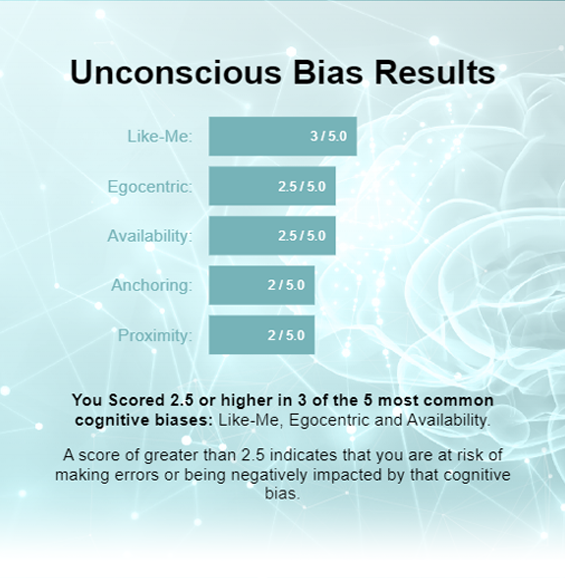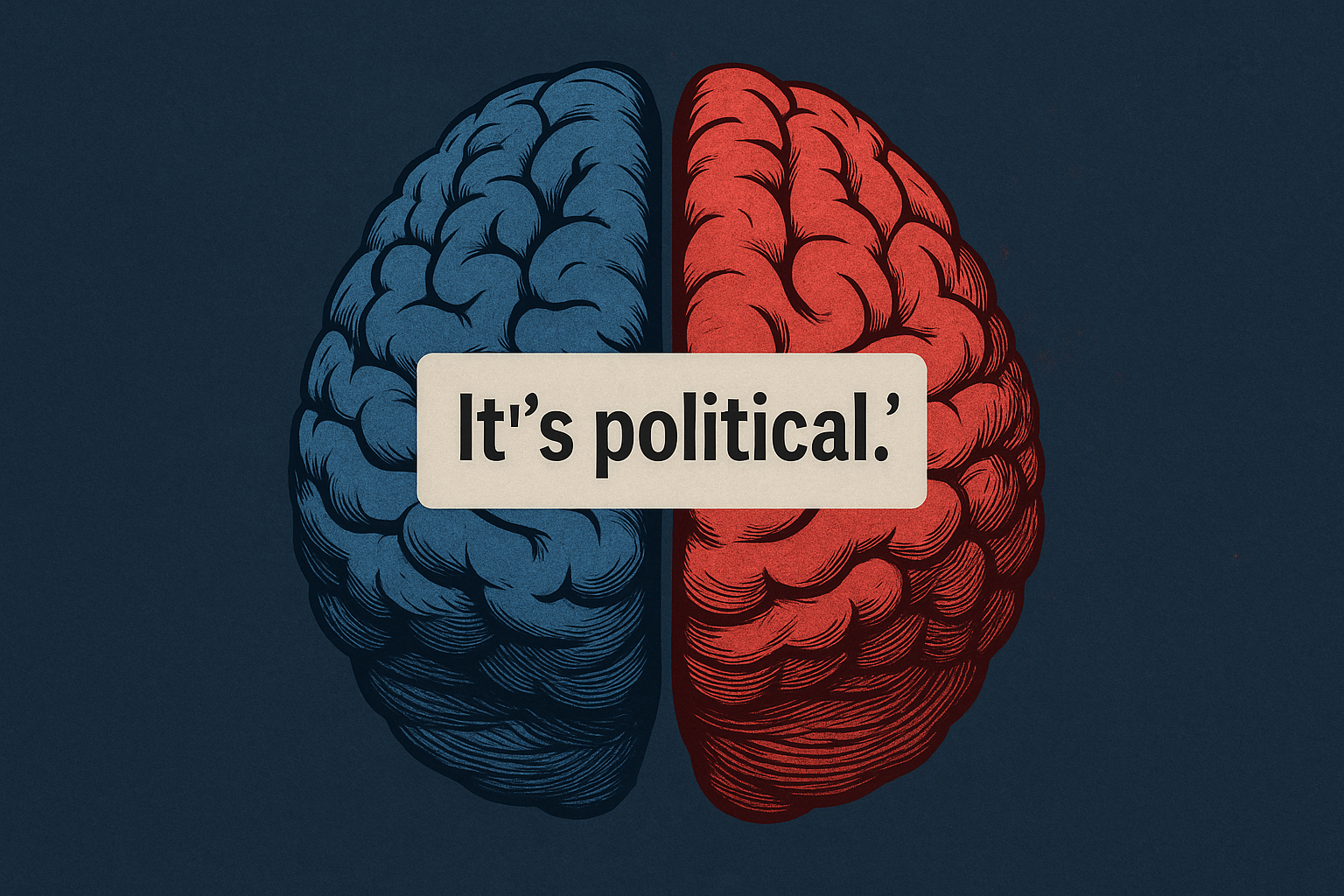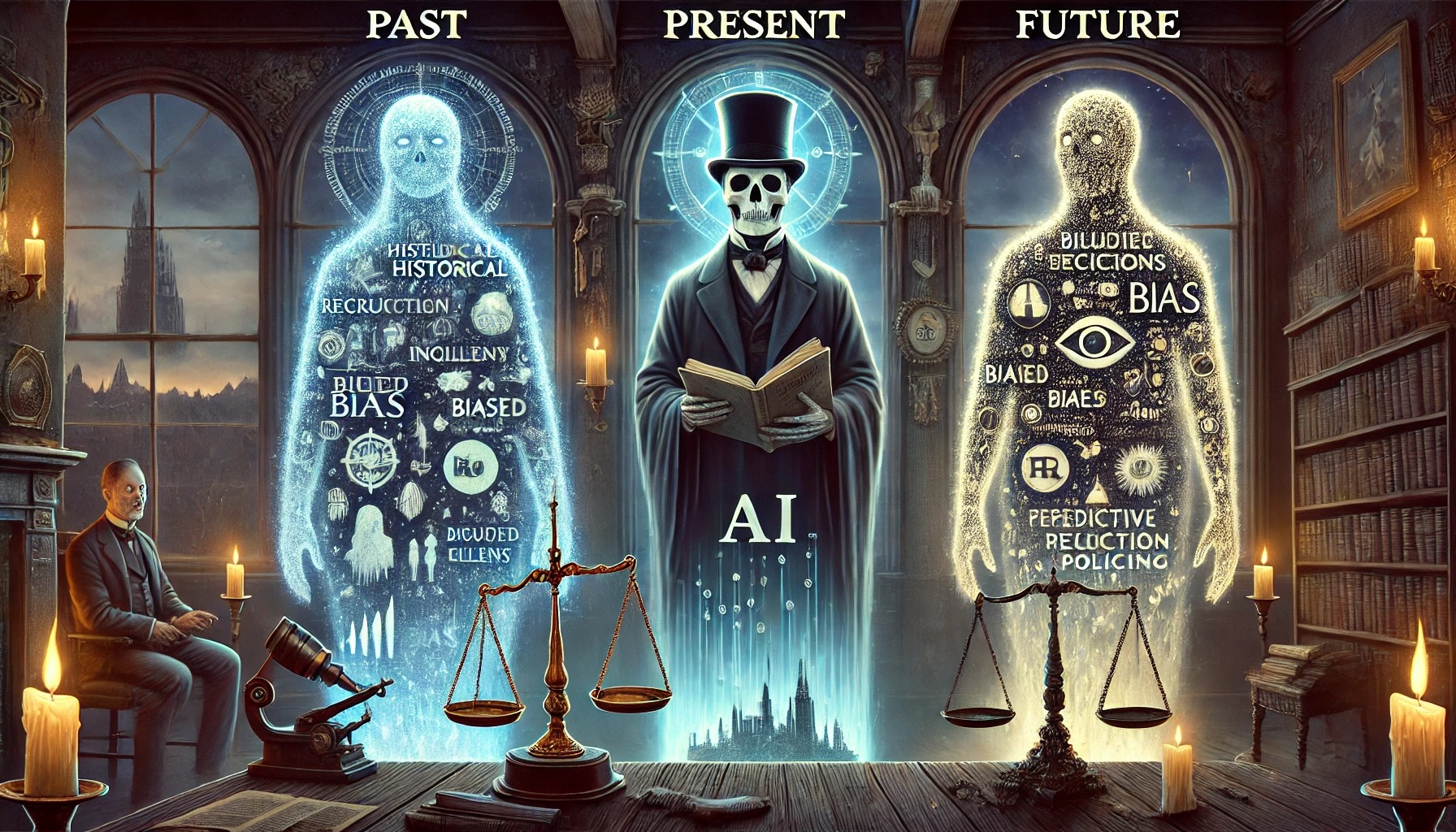Like-Me bias brings people together, since common traits & interests build community … and it sets people apart, as “othering” leads to stereotyping: racism, gender bias and a multitude of other perceived differences.
Bias is unavoidable – we have a brain, so we have bias. Primitive people survived by forming tribes, and your tribe meant safety and strength in numbers. As the human brain developed in blossoming societies, biases became inherent in how we understand the world. There are over 180 categories of bias, and those are just the ones with labels. In the business world, there are five primary ones that have the greatest potential for negative impact in our work environments.
We know this to be true in our everyday interactions with anyone we meet for the first time. As we make small talk, “Are you from here?” “What do you do for a living?” “Where’d you go to school?” “Did you see the game last night?” “Did you see Game of Thrones last night?”; in theory, we are getting to know someone. In reality, we are looking for connections – ways that this person is like us, however small that connection might be.
Why does our brain do this? Our brain is constantly trying to develop shortcuts for the 11 million bits of information it is managing at any one time. And while our brain can manage 11 million bits of information at the unconscious level, it can only manage about 50 bits of information at the conscious level. Any time the brain can create a shortcut for information, it will.
One of these shortcuts is to rapidly create an In Group and an Out Group with any one we meet. Our brain is trying to determine who is a threat and who is an ally, and it’s making this decision on limited information. This shortcut can provide a sense of comfort and security. This comfort and security drive our behavior towards people that are like us (race, gender, culture, age) and away from those that are not like us. In the short-term, especially with startups or when expediency is paramount, this bias may be helpful.
In the workplace, the Like-Me bias shows up in who we partner with on projects, who we hire, who we give new responsibilities and opportunities to and who we promote. This bias can evolve to include other types of unconscious biases. Over time, unchecked biases lead to unintended consequences. The tendency to ignore like-me bias can easily lead to establishing unfair informal or formal hiring practices, collaboration and promotion practices that further entrench this bias into the governance structure of a company.
I’m a University of Michigan graduate. Invariably if I meet a Michigan alumnus, we exchange a quick “Go Blue!” and subconsciously, my brain has already decided that I like this person. The University of Michigan enrolls nearly 45,000 people every year, so the likelihood that a random person who also went to Michigan is actually Like-Me is fairly small. My brain, however, doesn’t care–it has found a shortcut. In casual acquaintances, this bias won’t make much difference. I will either never interact with them again, or I’ll get to know them better and decide whether we have more in common.
In a professional context though, this might have a more significant consequence. The unconscious “Like-Me” bias will shape our interaction and I’m far more likely to be generous with favoring this person in a professional context. If I’m on a hiring committee, I might be predisposed to bring them in for an interview, or to hire them. I might prefer to work alongside them on projects or collaborate informally, knowing that we have something we can always talk about. I might assume that that we share some of the same values or working styles.
In the workplace, the Like-Me bias can have significant consequences. It means that we overvalue people who are like us–or who we think are like us. It can lead us to judge and categorize people by real or perceived similarities that are not important rather than on actual potential and performance at work. This bias is prevalent and without proper mitigation, it can sometimes prevent us from correctly diagnosing problems and exacerbate issues that need not escalate and cause highly skilled talent to seek employment elsewhere. The Like-Me bias forms the seeds of social biases that will result in institutionalizing a wide variety of processes, policies and procedures that favor one specific type of group over another. And eventually, over time, the lack of diversity will begin to erode innovation, culture and revenue. What can we do about this?
Starting off, we can be mindful of the Like-Me bias. When we notice within ourselves an immediate connection or rejection of someone, we must stop ourselves and consciously ask, “what is my reaction based on? Is it based on real and relevant information or is this based on my brain trying to rapidly categorize this person?” The Like-Me bias can become easy to recognize, in part because we do it so often, but it is much harder to mitigate. It requires us to get in actual connection with everyone and build relationships formed on that. It demands that we expand our boundaries on who is “Like Us”, to get beyond surface conversations and surface judgements to a place of actual understanding. This needs time and our workplace often rewards speed and quick decision-making. It also asks us to find common ground in people who seem nothing like us. It will also be acceptable to simply not like someone, however, for a company to benefit from inclusive practices, differences sometimes need to be put aside in favor of seeking common ground and strengths in the “other.”

If you have a brain, you have bias!
This 20-question test provides actionable insights. Select the response that closely matches your current state of mind. The design is intended to introduce you to the five most common cognitive biases: Like-me, Egocentric, Availability, Anchoring & Proximity. Results may vary. No data is shared with anyone.

Percipio Company is led by Matthew Cahill. His deep expertise in cognitive, social, and workplace biases is rooted in the belief that if you have a brain, you have bias®. He works with executives to reduce mental mistakes, strengthen workplace relationships & disrupt existing bias within current HR processes, meeting protocols and corporate policies. Matthew has demonstrated success with large clients like LinkedIn, Salesforce and dozens of small to mid-size companies looking to create more inclusive workplaces, work smarter, generate more revenue and move from bias to belonging®.






